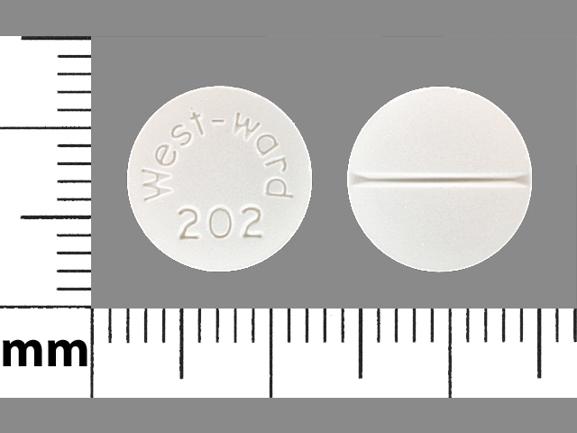Cortisone
Generic name: cortisone [ KOR-ti-sone ]
Brand name: Cortone Acetate
Dosage form: oral tablet (25 mg)
Drug class: Glucocorticoids
What is cortisone?
Cortisone is a steroid medicine that is used to reduce inflammation caused by many different conditions such as allergic disorders, skin conditions, ulcerative colitis, arthritis, lupus, psoriasis, and breathing problems.
Cortisone may also be used for purposes not listed in this medication guide.
Cortisone side effects
Get emergency medical help if you have signs of an allergic reaction: hives; difficulty breathing; swelling of your face, lips, tongue, or throat.
Cortisone may cause serious side effects. Call your doctor at once if you have:
-
blurred vision, eye pain or redness, seeing halos around lights;
-
swelling, rapid weight gain, feeling short of breath;
-
unusual changes in mood or behavior;
-
skin lesions;
-
sudden unusual pain in a bone or joint;
-
severe headaches, ringing in your ears, pain behind your eyes;
-
stomach bleeding--bloody or tarry stools, coughing up blood or vomit that looks like coffee grounds;
-
pancreatitis--severe pain in your upper stomach spreading to your back, nausea and vomiting; or
-
low blood potassium--leg cramps, constipation, irregular heartbeats, fluttering in your chest, increased thirst or urination, numbness or tingling, muscle weakness or limp feeling.
Cortisone can affect growth in children. Tell your doctor if your child is not growing at a normal rate.
Common side effects of cortisone may include:
-
muscle pain or weakness;
-
sleep problems (insomnia), mood changes;
-
thinning skin, bruising or discoloration;
-
increased sweating;
-
headache, dizziness, spinning sensation;
-
stomach pain, bloating; or
-
slow wound healing.
This is not a complete list of side effects and others may occur. Call your doctor for medical advice about side effects. You may report side effects to FDA at 1-800-FDA-1088.
Related/similar drugs
Warnings
Follow all directions on the label and package. Use exactly as directed.
Before taking this medicine
You should not use cortisone if you are allergic to it, or if you have a fungal infection anywhere in your body.
Steroids can weaken your immune system, making it easier for you to get an infection or worsening an infection you already have. Tell your doctor about any illness or infection you had within the past several weeks, especially:
-
herpes infection of the eyes; or
-
a parasite infection that causes diarrhea (such as threadworms).
Tell your doctor if you have ever had:
-
cirrhosis or other liver disease;
-
kidney disease;
-
a thyroid disorder;
-
a muscle disorder such as myasthenia gravis;
-
glaucoma or cataracts;
-
stomach ulcers, ulcerative colitis, or diverticulitis;
-
depression or mental illness;
-
congestive heart failure; or
-
high blood pressure.
Tell your doctor if you are pregnant or breastfeeding.
How should I take cortisone?
Follow all directions on your prescription label and read all medication guides or instruction sheets. Your doctor may occasionally change your dose. Use the medicine exactly as directed.
Your dose needs may change due to surgery, illness, stress, fever, or infection. Do not change your dose or stop using cortisone without your doctor's advice.
cortisone can affect the results of certain medical tests. Tell any doctor who treats you that you are using cortisone.
Store at room temperature away from moisture, heat, and light.
Wear a medical alert tag or carry an ID card to let others know you take steroid medicine.
You should not stop using cortisone suddenly. Follow your doctor's instructions about tapering your dose.
What happens if I miss a dose?
Take the medicine as soon as you can, but skip the missed dose if it is almost time for your next dose. Do not take two doses at one time.
What happens if I overdose?
Seek emergency medical attention or call the Poison Help line at 1-800-222-1222.
High doses or long-term use of steroid medicine can lead to thinning skin, easy bruising, changes in body fat (especially in your face, neck, back, and waist), increased acne or facial hair, menstrual problems, impotence, or loss of interest in sex.
What should I avoid while taking cortisone?
Ask your doctor before receiving a vaccine. The vaccine may not work as well while you are using cortisone.
Avoid being near people who are sick or have infections. Call your doctor for preventive treatment if you are exposed to chickenpox or measles. These conditions can be serious or even fatal in people who are using cortisone.
Avoid drinking alcohol.
What other drugs will affect cortisone?
Tell your doctor about all your other medicines, especially:
-
aspirin (taken on a daily basis or at high doses);
-
rifampin;
-
a blood thinner such as warfarin (Coumadin, Jantoven);
-
a diuretic (water pill);
-
insulin or oral diabetes medicine; or
-
seizure medicine such as phenytoin or phenobarbital.
This list is not complete. Other drugs may affect cortisone, including prescription and over-the-counter medicines, vitamins, and herbal products. Not all possible drug interactions are listed here.
Popular FAQ
What are the side effects of steroids?
The main short-term side effects of steroids are acne, stomach irritation, and an increased risk of infection. Side effects can be more severe with long-term administration. Continue reading
More FAQ
- What is the difference between hydrocortisone and cortisone?
- How long do the effects of a cortisone injection shot last?
More about cortisone
- Check interactions
- Compare alternatives
- Pricing & coupons
- Reviews (7)
- Drug images
- Side effects
- Dosage information
- During pregnancy
- Support group
- Drug class: glucocorticoids
- Breastfeeding
- En español
Professional resources
Related treatment guides
Further information
Remember, keep this and all other medicines out of the reach of children, never share your medicines with others, and use this medication only for the indication prescribed.
Always consult your healthcare provider to ensure the information displayed on this page applies to your personal circumstances.
Copyright 1996-2025 Cerner Multum, Inc. Version: 8.02.

